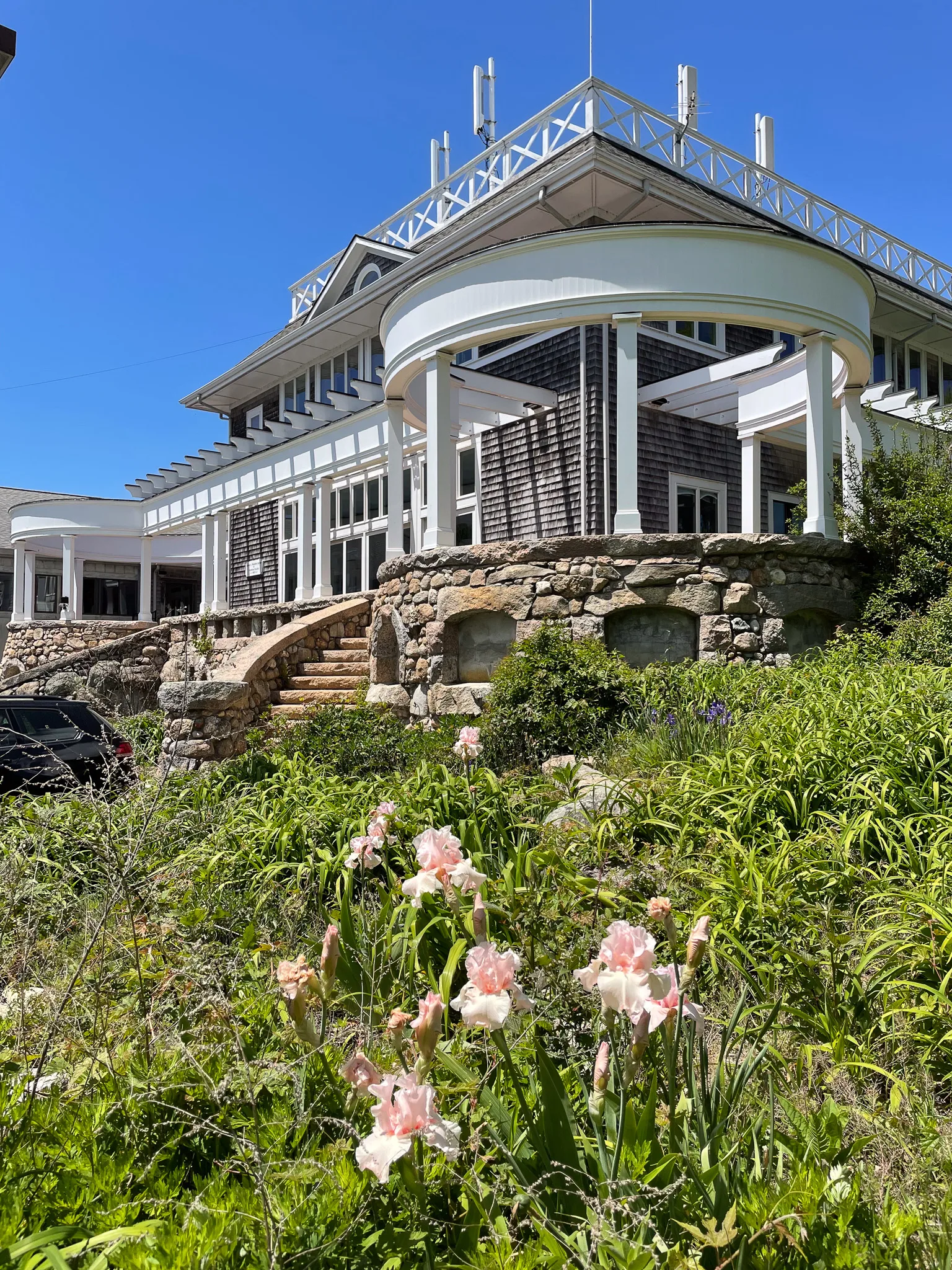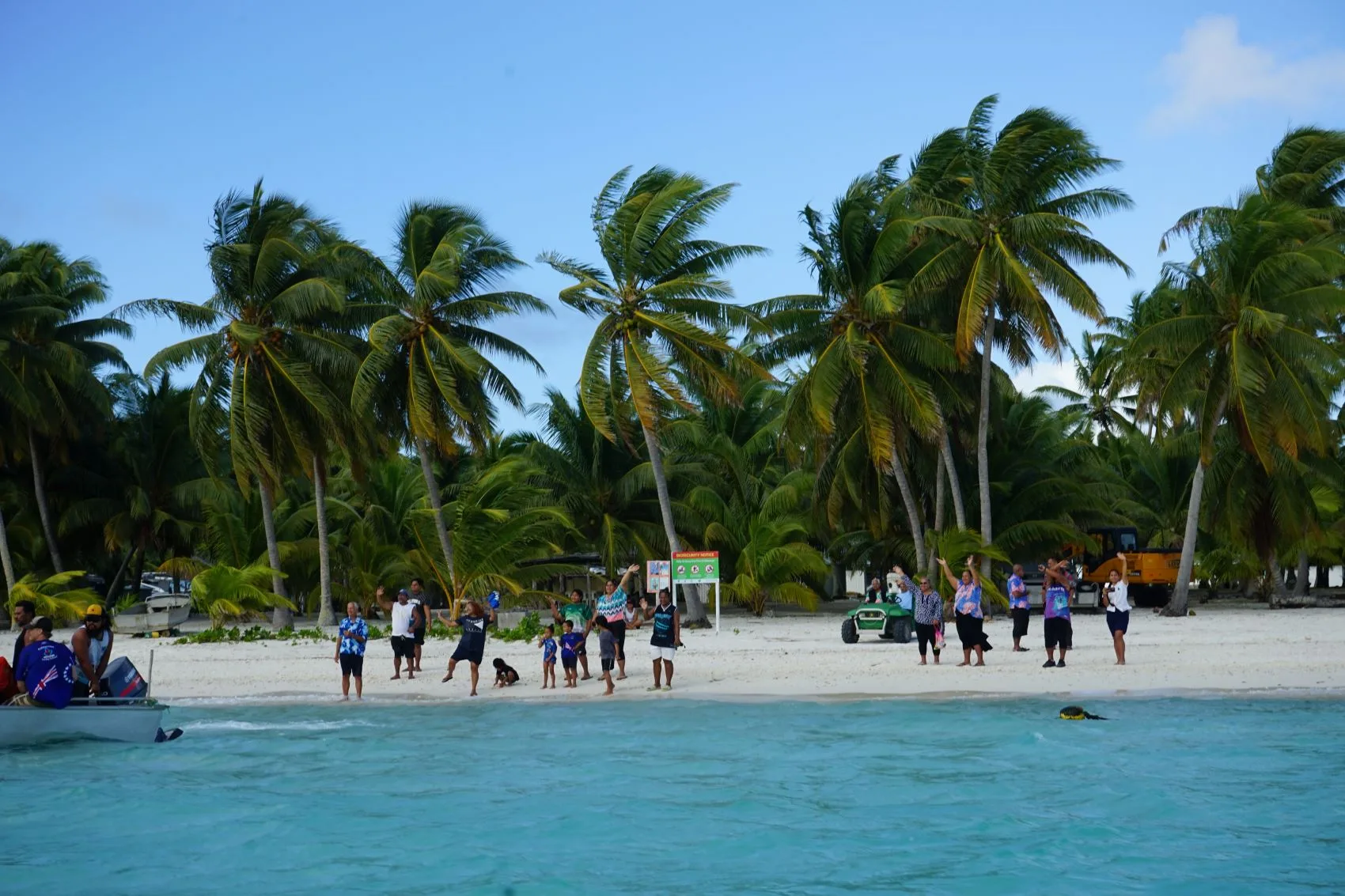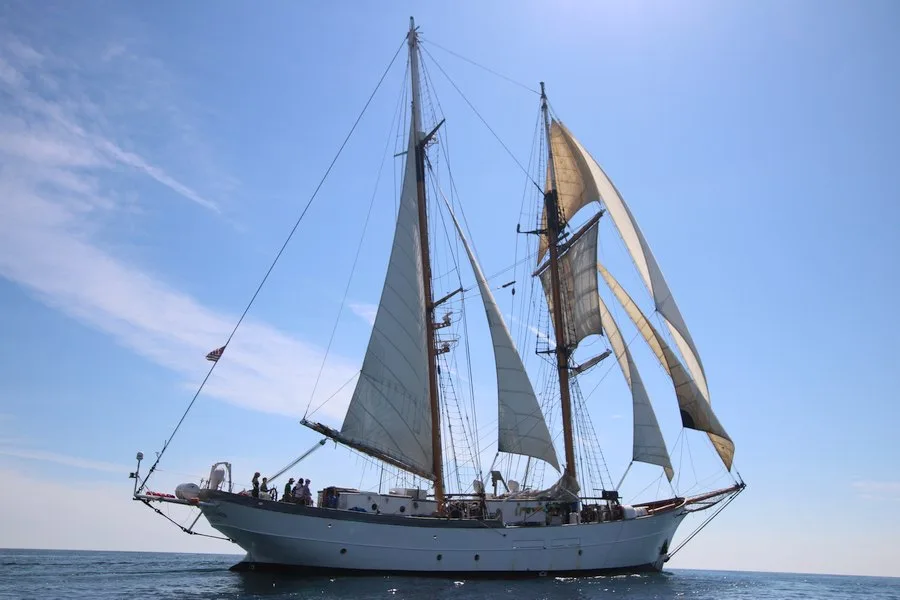Student Life
The student cohort plays an integral role in the overall student experience. Community living is woven throughout each academic program as students live and work alongside each other and their program faculty.
Each program is assigned a program assistant focused solely on student preparation and experience. Working with the director of student services, program assistants create positive group dynamics and provide medical and mental health support.
EXPLORE

On campus in Woods Hole, MA
Through a combination of rigorous academics and community living, time on SEA’s campus is designed to prepare students for life in the field. The combination of Woods Hole’s oceanographic community with the diverse ecosystems that make up Cape Cod serve as an inspiring backdrop for students to gain hands-on experience and real-world application. Students have the opportunity to learn from some of the world’s leading ocean and climate experts.
Living in fully furnished cottages on SEA’s campus, students share the responsibilities of grocery shopping, cooking, and cleaning. By balancing academic coursework with communal living, students develop the skills needed to face the demands and rewards of field research. During free time and on weekends students can enjoy the use of SEA’s bikes, visit downtown Falmouth, take a ferry to Martha’s Vineyard, or relax at Racing Beach (privately deeded).
On shore in coastal communities
Time spent in coastal communities provides an immersive experience where students are able to engage with and learn from local community experts. Discussions and activities are designed to show the cultural relationships to the ocean and how that impacts various policy and conservation efforts. Whether it’s Māori culture in New Zealand, the impact of climate change on Polynesian reefs, or the colonial history of the Caribbean, time spent in coastal communities offer students an opportunity to experience first-hand what they have studied in the classroom in Woods Hole. They also provide a critical academic and research component, allowing students access to primary sources in their various areas of study.
During this time, SEA students meet with local politicians, naturalists, and scientists, and visit historical museums and scientific institutions to form critical connections between ocean science, policy, history, and culture.


At sea aboard SEA’s tall ship
While at sea, participants take on three critical roles: student, researcher, and crew member. Life at sea is busy as students deploy equipment to collect measurements and samples; stand watch as part of an around-the-clock schedule; and assist with navigation, engineering, meal preparation, and cleaning.
SEA’s watch schedule operates on a 6-hour rotating schedule between three watch groups (A, B, and C); however, some programs may make port calls allowing for a break from the rhythm of life at sea and time to visit local communities.
Health & Safety
The safety of all SEA program participants and staff is among our highest priorities. To this end, SEA maintains a philosophy of prevention in managing risk in its activities. This is accomplished by an ongoing assessment of risk for activities either on shore or at sea. Recognizing that its programs involve risks that are inherent and unavoidable, SEA applies accepted safety management principles in developing and documenting appropriate policies, procedures and practices in an effort to reduce risk to a level that is “as low as reasonably practicable” (ALARP) consistent with SEA’s mission.
SEA headquarters maintains a 24-hour emergency contact system and is in daily contact with our programs. To contact, please call (800) 552-3633
Health Screening & Medical Clearance
Participation in SEA programs is contingent upon medical clearance. Due to the physical nature of in-person SEA programs, students are required to undergo a thorough physical examination performed by a licensed medical practitioner within six months of the start of the program.
With adequate lead-time, SEA can frequently facilitate appropriate risk management for a wide variety of preexisting medical conditions. We work with every student on an individual basis to assess whether his or her participation in a SEA program can occur safely and effectively.
Health & Safety on Shore
SEA student support staff work with participants to maximize academic success and personal growth during the program. Program assistants live in proximity to the students and are available on a 24/7 basis should any issues arise. Each program assistant is a certified Wilderness First Responder (WFR) and is supported by a student affairs manager and medical director at the main SEA campus. In each program location, SEA has identified appropriate medical facilities such as English-speaking doctors, clinics, hospitals, and pharmacies.
Students receive information specific to each program location that covers emergency procedures, contact information, and communications.
While abroad, faculty and staff have international cellular connectivity as well as a Garmin GPSMAP® 67i GPS Handheld with inReach® Satellite Technology for emergency communication.
Health & Safety at sea
SEA owns and operates the SSV Corwith Cramer and the SSV Robert C. Seamans, both custom designed and uniquely built educational platforms with student and crew safety foremost in mind. At sea, the staff to student ratio is approximately 1:2. Our professional staff receives safety and medical training and performs regular drills.
SEA ships are U.S. flagged, inspected, and regulated vessels. They are United States Coast Guard (USCG) certified and regularly inspected for ocean service. In addition, they are inspected by the American Bureau of Shipping and meet or exceed ABS’ stringent machinery and hull safety standards. As U.S. flagged Sailing School Vessels (SSVs), SEA ships are required to meet safety standards different from those for passenger vessels on a comparable route.
Both ships maintain 24-hour access to a network of physicians specially trained to provide remote medical care & advice. Our medical response plans include use of MedSea (a subsidiary of International SOS) and Divers Alert Network (DAN)’s TravelAssist program, which arranges emergency medical evacuations for any medical emergency and offers many other medical, travel, and legal benefits. SEA’s DAN membership also allows us access to resources such as Worldcue® PLANNER health, safety, and security briefs, powered by iJET Intelligent Risk Systems, for regions of the globe in which SEA operates.
A Safety Management System governs the operation of SEA vessels and programs aboard those vessels. Emergency drills are conducted weekly when underway and recorded in the deck logbook as per USCG requirements.
SEA cruise tracks are planned well in advance to optimize program objectives, and are based on seasonal weather patterns, sea conditions, oceanographic research clearances and port calls visited. First and foremost, we consider weather; our cruise track selection and timing reflects strict adherence to predictable heavy weather avoidance.
While at sea, shipboard communications include high seas radio, satellite telephones, and limited email capability. Both vessels carry at least one SSB radio; a Thrane & Thrane Sailor 250 FleetBroadband (FBB) Inmarsat for data and voice communications; an Inmarsat C.; and an Iridium Satellite Phone.
Each ship maintains a daily satellite telephone schedule with SEA Headquarters in Woods Hole. SEA also uses Pole Star Fleet Management 2.0, a powerful web-based service that automatically tracks our vessels in real time. This service supports an automated position report of each vessel every six hours. Data sent from the ships includes course, speed, and meteorological data including weather, wind speed and direction, and sea state.
Student Policies
SEA is an academic community dedicated to the pursuit of intellectual and personal growth. We are committed to creating and maintaining a learning environment in which individuals are responsible for their actions and for the impact of their actions on others.
To that end, we provide students with policies to best support their well being and success while enrolled, including:
- Code of Conduct
- Drug & Alcohol Policy
- Academic Integrity Policy
- Sexual Harassment/Sexual Discrimination Policy
Student Orientation
SEA programs can include a variety of student orientations, depending on the program structure:
- Pre-program orientation zoom call two weeks prior to the start of the program
- General program orientation upon arrival in Woods Hole
- Coastal community or sea component orientation
- Shipboard orientation during the first 24 hours of a sea component
Prior to each new location or port stop, students are briefed on program itinerary, safety & risk management, and cultural norms and expectations.